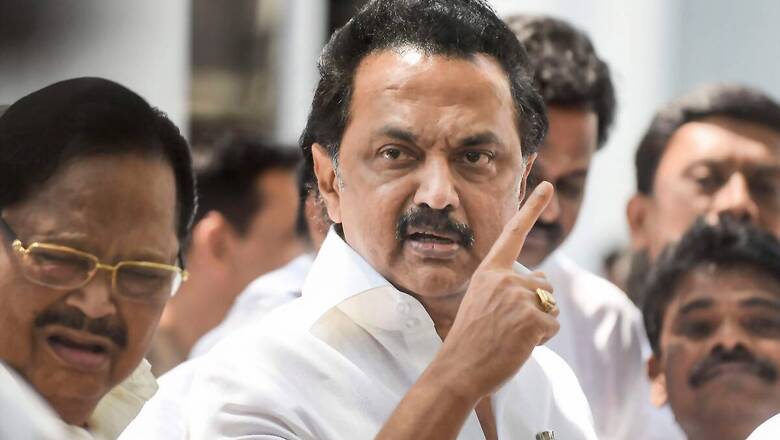
views
Chennai: The political discourse in Tamil Nadu is swaying inexorably towards an oft-trodden ground: language politics.
In the wake of the unveiling of the National Education policy – a ‘reform’ to the country’s education framework after several decades – the political temperature has begun rising again. The DMK, the original handler of the ‘language imposition is hegemony tool’ in Tamil Nadu, is at it again. Led by MK Stalin, and flanked by son Udhayanidhi Stalin and stepsister Kanimozhi, the DMK is hitting out at many instances of imposition of Hindi, and, in some places, Sanskrit.
The most recent one being Udhayanidhi highlighting the plight of a senior officer posted in the Hindi cell of the state’s GST commissionerate, who does not know the language. In another instance, DMK MP Tiruchi Siva had tweeted about the removal of regional languages from nationalised banks, and got a quick denial from finance minister Nirmala Sitharaman on social media. Clearly, language is a political nerve centre in Tamil Nadu.
The DMK is going by a tried-and-tested playbook that it put to action just ahead of the 2019 general elections. It had a sustained campaign that dubbed the ruling AIADMK government as a docile follower of the BJP at the Centre, bringing out multiple instances of erosion of cooperative federalism, abdication of state rights, and the enabler of saffronisation of what was essentially a Dravidian land. For example, the multiple hydrocarbon-extraction projects in the Cauvery Delta region, the subject of medical entrance test NEET (which is still a burning issue), the delay in the setting up of the Cauvery Water Management Board (both national parties were caught between conflicting political interests of Karnataka and Tamil Nadu over the river sharing), the shooting of 13 people protesting against the Vedanta Sterlite factory in southern Tamil Nadu, and several local issues that seemed to put the BJP government and its ally, AIADMK, on the defensive.
The DMK had significant social media campaign machines that kept turning small drives into national trends in no time. It is this playbook that the DMK is trying to replicate ahead of the 2021 assembly elections, and it appears as though the Edappadi K Palaniswami government is trying to neutralise the salvos from the opposition camp.
For example, Palaniswami is looking assertive now. Firstly, he did not bow to saffron pressure to allow Ganesh Chaturthi processions and stationary displays in the state. Even after state BJP president L Murugan had led a delegation and tried to make peace with the chief minister, there were few signs of relenting. Secondly, the Palaniswami government issued a very strong statement, refusing to implement the three-language formula in Tamil Nadu. The DMK had been going after both governments over various contentious provisions in the National Education Policy. Palaniswami, however, is hindered by internal factionalism in the AIADMK that threatens to break out, every now and then. The episode of AIADMK ministers going from one leader’s house to another brings out how divided a house the party is. Comparatively, the friction caused by the clout enjoyed by the son of MK Stalin, Udhayanidhi Stalin, is not significant.
To its credit, the DMK doesn’t let its electoral campaign issues slide by the wayside after the elections are over. In fact, the draft of the National Education Policy was released after the parliamentary elections of 2019 but the party actively took up contentious issues provisioned in the policy. For example, the draft had contained Hindi as an optional third language in non-Hindi speaking states, something the DMK opposed strongly and the Centre had to put out a revised draft.
In the politically benumbed scenario dominated by the novel coronavirus, the DMK is actively leveraging social media to spread its message. All Kanimozhi had to do after her don’t-you-know-Hindi experience at the Chennai airport was to just tweet about it. It was a new lease of life to DMK’s anti-Hindi imposition campaign. Over the weekend, the party had t-shirts printed with the words ‘Don’t know Hindi, get lost’ and distributed wildly to aid its social media campaigns. Compared to the DMK’s strides on the social media, the AIADMK is clearly a weak force; in fact, followers of actor Rajinikanth and the BJP’s IT wing in the state give a tough fight to the DMK’s rampaging trends.
Palaniswami’s recent refusal to allow the three-language formula needs to be viewed in the context of this high-stakes political crossfire between the AIADMK and the DMK. Out of power for nearly a decade now, the DMK is rummaging its quiver for its sharpest arrow. As of now, language policy, NEET, the OBC reservation controversy have come to hand. The AIADMK is trying its best to blunt the edges of all of these arrows. The BJP, with no MLAs in the assembly, is trying hard to open its account. Prime Minister Narendra Modi has been belting out couplets from ancient works of Tamil philosophers for a while now, even as the state unit goes about bad-mouthing Dravidian movement leaders such as Periyar E V Ramasamy; in effect, it has turned itself into a source of uneasiness for its larger ally AIADMK, which would prefer a true-blue Dravidian battle at the hustings than one between the unfamiliar terrain of ‘united Hindu believers’ and everyone else.










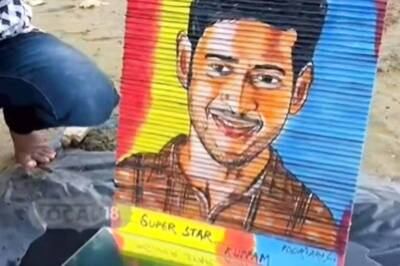

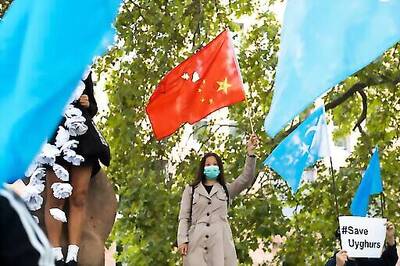


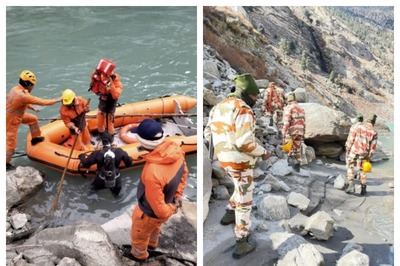

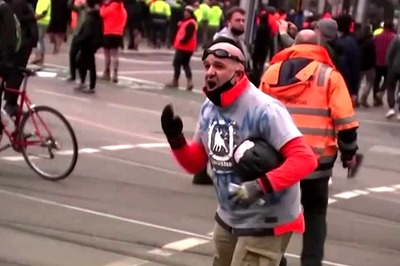
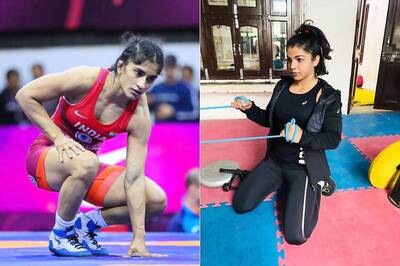

Comments
0 comment